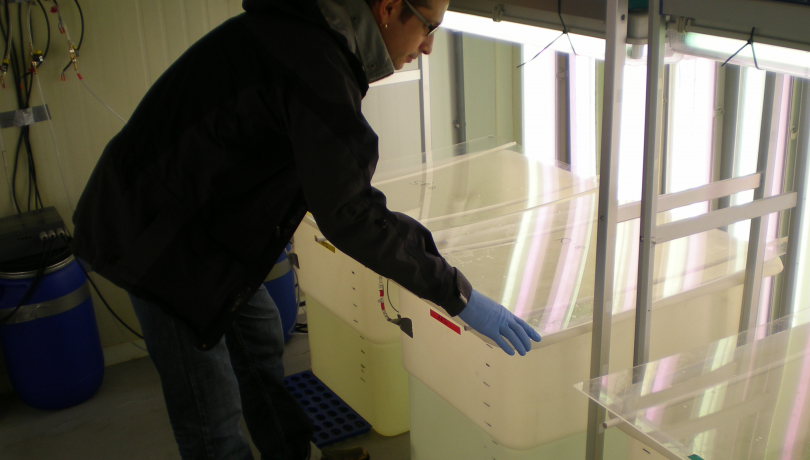Marine bacteria are heavily influenced by ongoing ocean acidification caused by human emissions of carbon dioxide. This discovery is made by researchers at the Institute of Marine Science (Eva Calvo, Josep Maria Gasol, Cèlia Marrasé and Carles Pelejero), together with researchers of the Linnaeus University in Sweden, the La Laguna University in Tenerife and the Institute of Environmental Assessment and Water Research (IDAEA-CSIC). The results are presented in an article in the recognized scientific journal Nature Climate Change.

Marine bacteria are heavily influenced by ongoing ocean acidification caused by human emissions of carbon dioxide. This discovery is made by researchers at the Institute of Marine Science (Eva Calvo, Josep Maria Gasol, Cèlia Marrasé and Carles Pelejero), together with researchers of the Linnaeus University in Sweden, the La Laguna University in Tenerife and the Institute of Environmental Assessment and Water Research (IDAEA-CSIC). The results are presented in an article in the recognized scientific journal Nature Climate Change.
“It is well known that acidification of the oceans causes the degradation of coral reefs and disturbs the production of the calcareous shells of important phytoplankton”, says Carles Pelejero, ICREA Professor at the ICM.
Bacteria in the sea play a crucial role in the global cycling of elements necessary to life. They act as the primary degraders of organic material produced through photosynthesis of microscopic algae in the ocean, or material released through wastewater. When algae or other organisms die and are degraded by bacteria and at the same time the bacteria mediate the release of elements like nitrogen or phosphorous that are essential to the food chain. Now the researchers at the ICM show that bacteria in the sea that experience ocean acidification require to significantly alter their metabolism. They need to invest extra energy for activating mechanisms to counterbalance the stress produced by acidification, indicates Josep Maria Gasol.
It is estimated that the world ocean will become three times more acid towards the end of this century if human emissions of carbon dioxide from fossil fuels continue at current rates.
“It is generally assumed that increased concentrations of carbon dioxide in the water, and the ocean acidification this causes, primarily will affect marine ecosystems by affecting algal photosynthesis”, says Cèlia Marrasé. Now our genetic analyses show that ocean acidification directly affect how bacteria regulate their metabolism.
In every liter of seawater there is around 1 billion bacterial cells. In a manner similar to how gut microbiota influence the health of humans, bacteria in the sea play a critical role in determining the health of marine ecosystems. For example, in addition to degradation, bacteria synthesize vitamins on which algae and other organisms in the sea depend.
“To understand the consequences of future climate change on the productivity of the ocean it is essential to carry out research on how bacteria respond to human emissions of carbon dioxide”, says Eva Calvo.
Paper:
Bunse, C., Lundin, D., Karlsson, C.M.G., Akram, N., Vila-Costa, M., Palovaara, J., Svensson, L., Holmfeldt, K., González, J.M., Calvo, E., Pelejero, C., Marrasé, C., Dopson, M., Gasol, J.M., Pinhassi, J. (2016) Response of marine bacterioplankton pH homeostasis gene expression to elevated CO2. Nature Climate Change. http://dx.doi.org/10.1038/nclimate2914